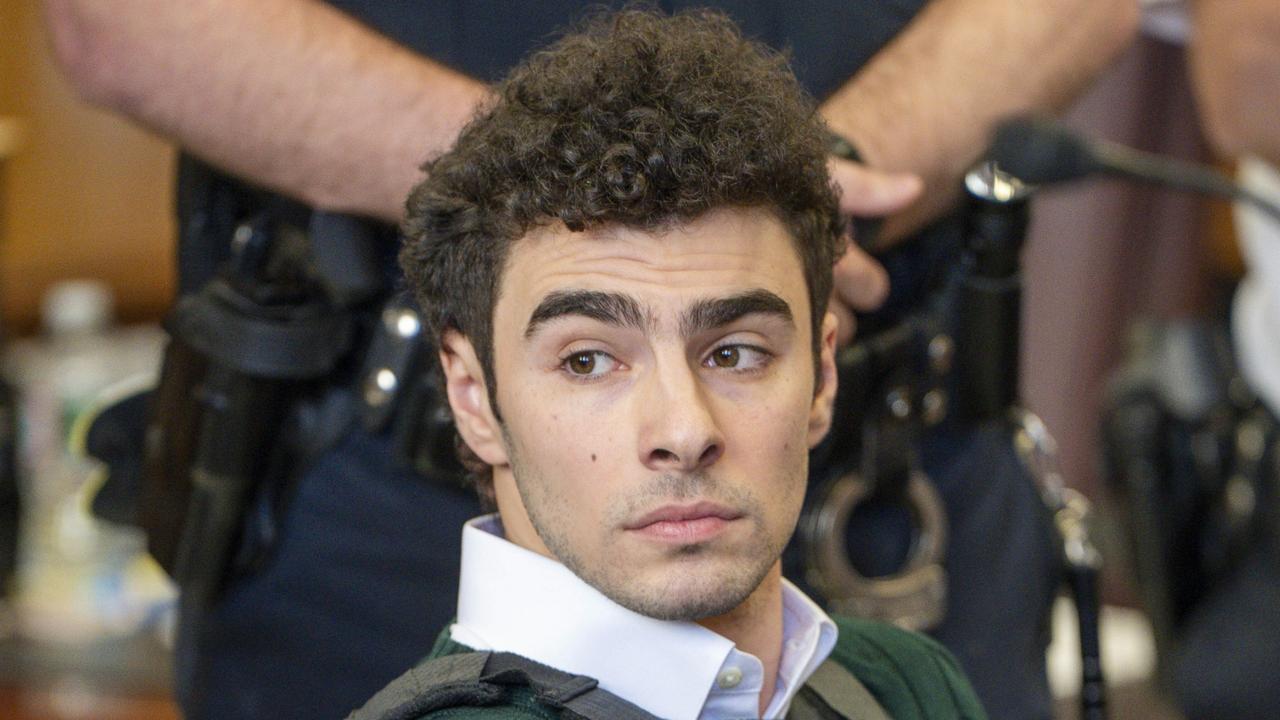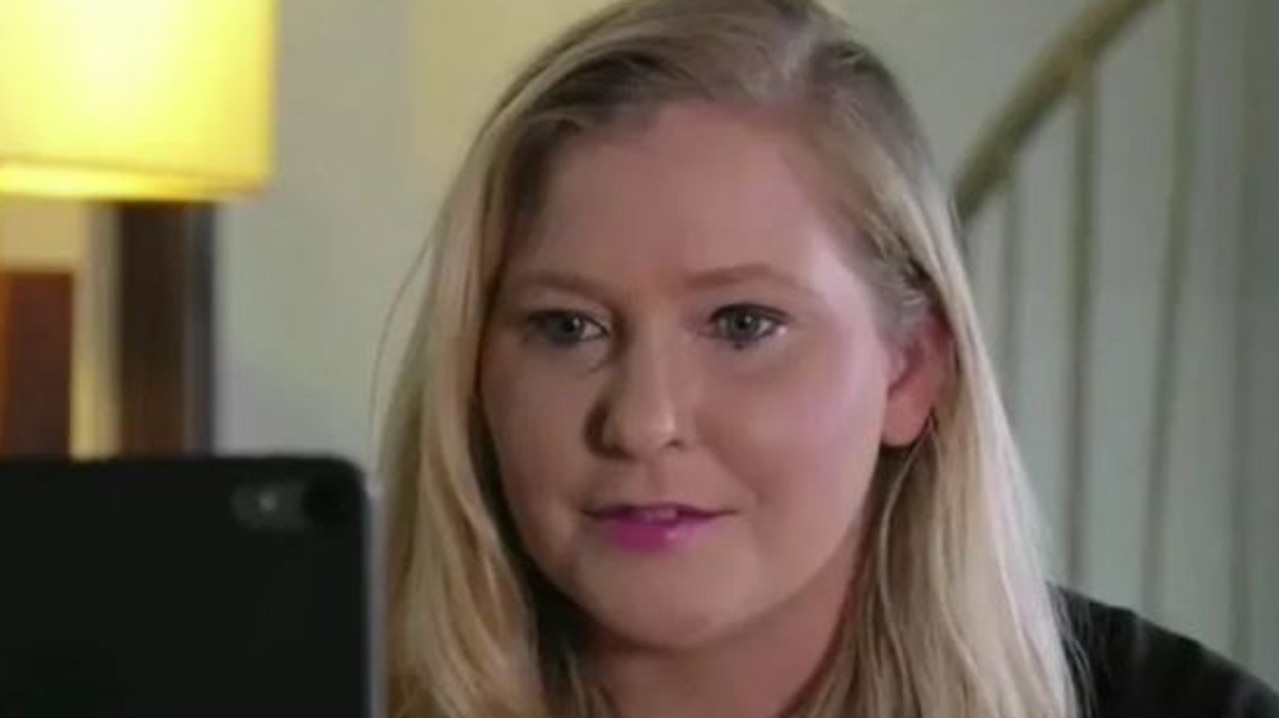Wagner Group boss Prigozhin exiled to Belarus after standing down in deal with Kremlin
Billionaire warlord Yevgeny Prigozhin will leave Russia as part of his deal to end his shock uprising after he turned against Vladimir Putin.
World
Don't miss out on the headlines from World. Followed categories will be added to My News.
Wagner Group leader Yevgeny Prigozhin will be exiled to Belarus and face no charges over the private military company’s failed coup against Vladimir Putin, Russia said, after he ordered his fighters to halt their march on Moscow.
Kremlin spokesman Dmitry Peskov said there would be no change of military leadership within Russia despite the crisis, which was sparked after Mr Prigozhin — a former close ally of the Russian President — led an armed mutiny against Russia’s military leadership.
“Avoiding bloodshed, internal confrontation, and clashes with unpredictable results was the highest goal,” Kremlin spokesman Dmitry Peskov told reporters.
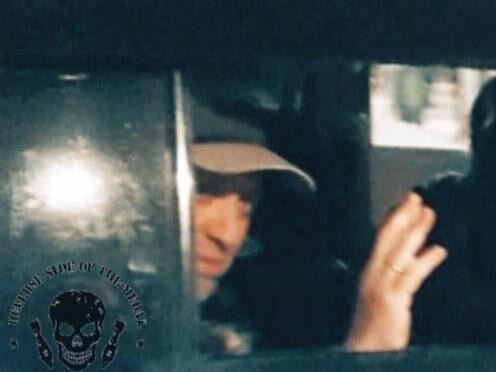
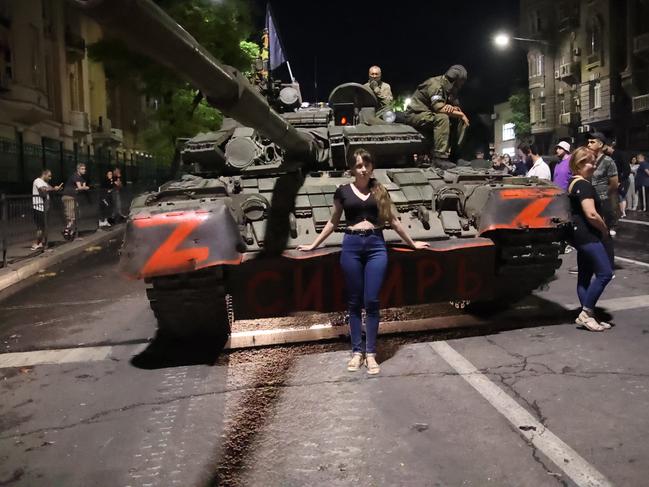
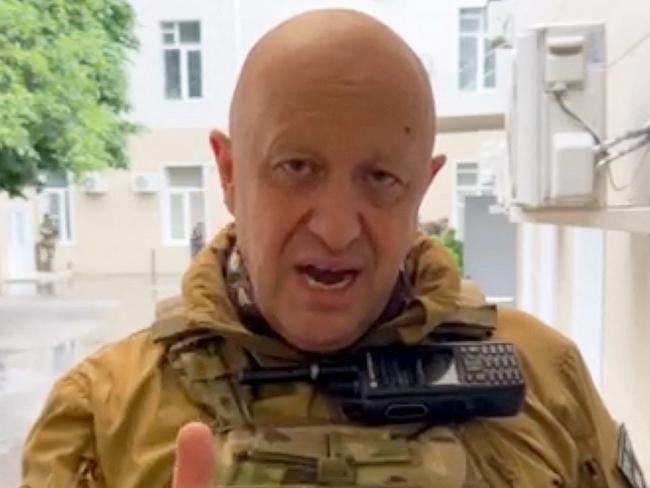
Mr Prigozhin’s network of mercenaries operating as a private army, known as the Wagner Group, captured a key army headquarters in southern Russia before heading north to threaten Moscow.
The billionaire warlord turned on Mr Putin and vowed to “punish” Russia after he blamed the Kremlin for a deadly missile attack on one of his training camps in the eastern Ukrainian city of Bakhmut.
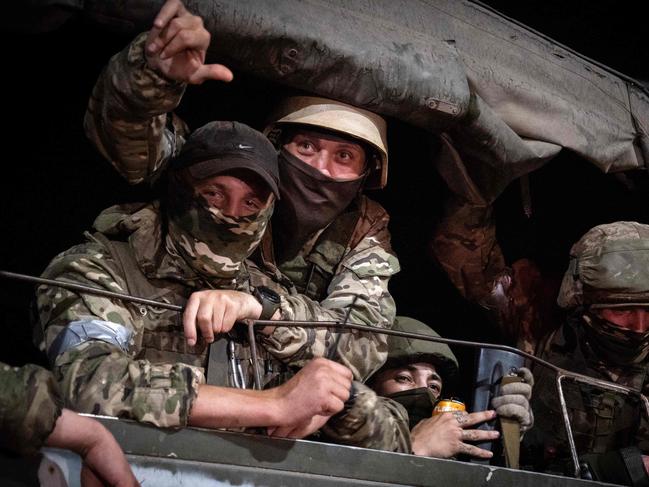
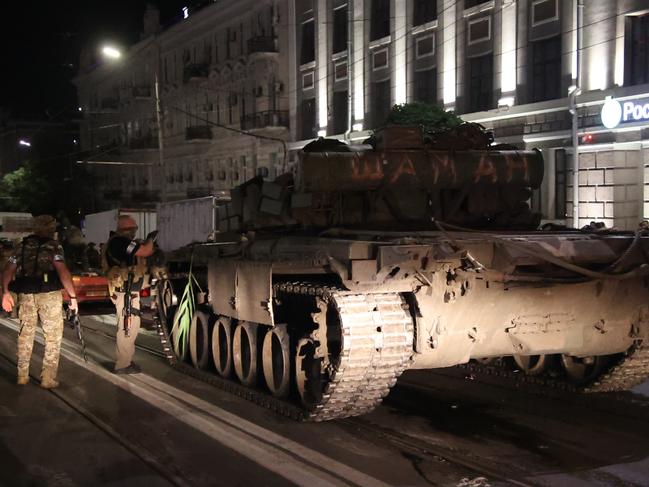
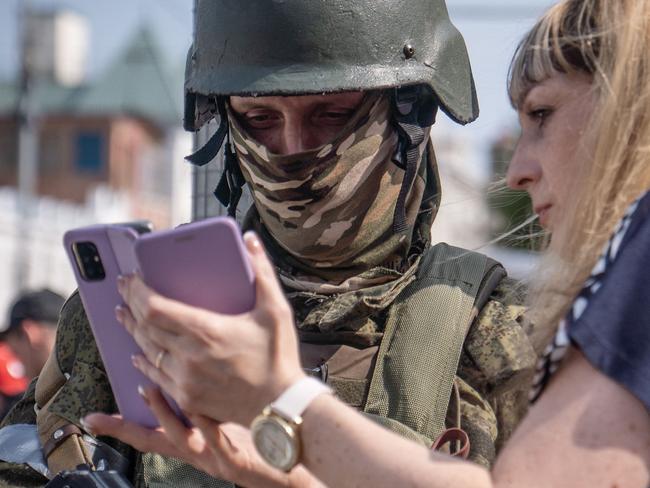
He called off his troops’ advance toward Moscow late on Saturday, pulling Russia back from its most serious security crisis in decades.
Under the truce agreement, brokered by Belarusian President Aleksander Lukashenko, Wagner fighters will not be prosecuted, Mr Peskov added.
“We have always respected their heroic deeds at the front,” he said.
“An agreement has been reached that Wagner would return to its bases,” Mr Peskov said, adding that those fighters who had not participated in the rebellion would be allowed to formally join the Russian army.
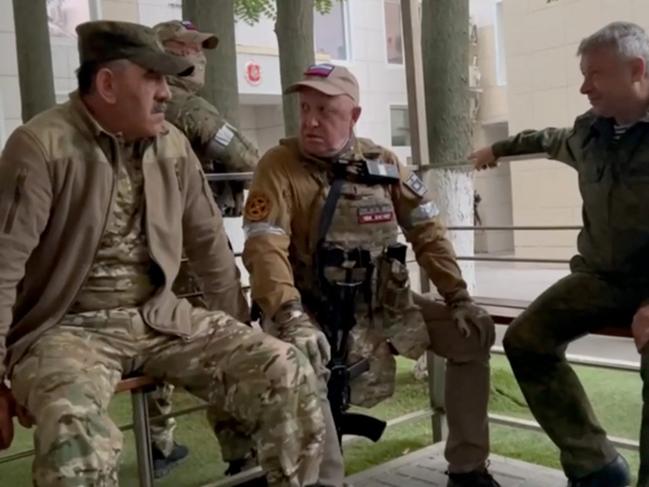
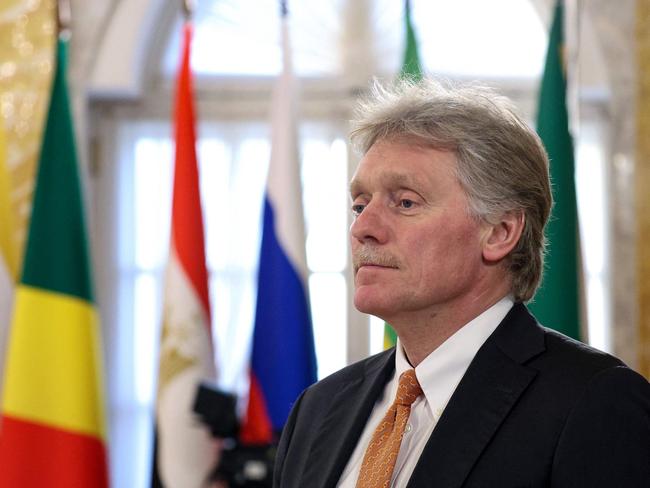
The Wagner Group was founded in 2014 by Mr Prigozhin, a former close confidant of the Russian President who was known as “Putin’s chef” because his catering business routinely won contracts to cater state events.
Since then, the company has operated in Syria, Mali, the Central African Republic and other countries. After registering as a company in 2022, the Wagner Group went on a massive “recruitment drive” plastering billboards in major Russian cities after Russia’s regular army struggled with numbers.
“We are turning our columns around and going back to field camps,” Mr Prigozhin announced after previously vowing to march on Moscow to topple the military leadership.
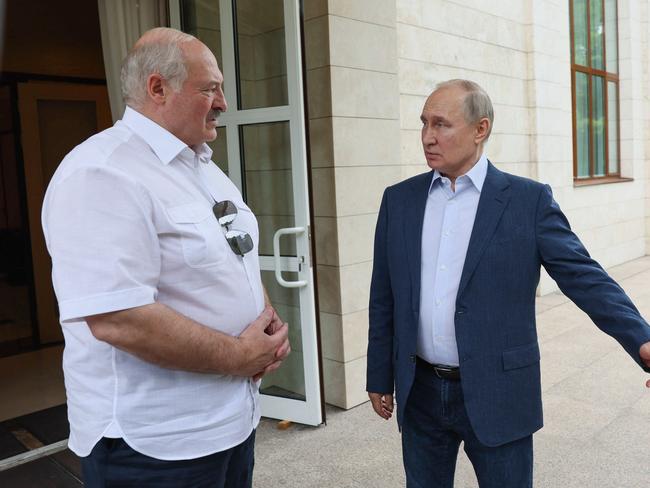
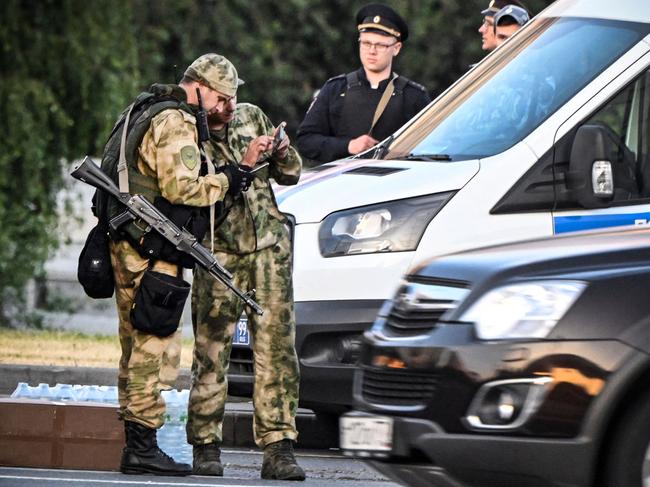
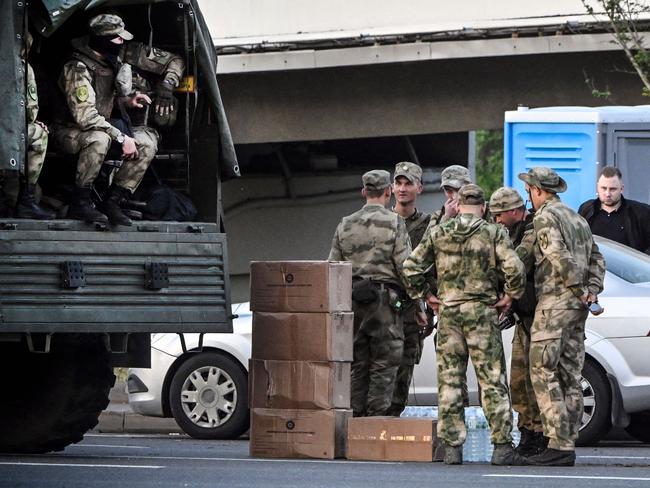
Kyiv revelled in the chaos as Mr Putin’s former mercenary ally turned his Wagner force away from the offensive against Ukraine and made threats against the Russian military.
“The man from the Kremlin is obviously very scared and is probably hiding somewhere,” Ukraine’s President Volodymyr Zelenskyy said in his daily address, adding that Mr Putin has “created this threat himself”.
Separately, Ukraine’s deputy defence minister Ganna Malyar announced that Ukrainian forces had gained more ground in the eastern region of the Donbas, launching new counteroffensives in several areas.will look
Mr Putin’s spokesman insisted the Russian leader was still at work in the Kremlin and had not fled Moscow.
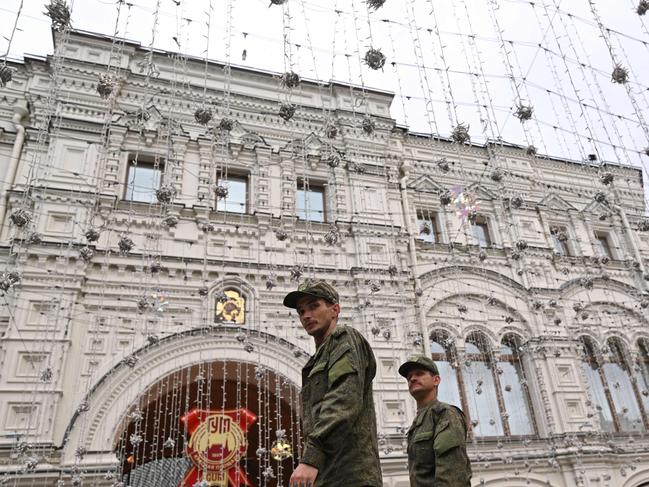
Kyiv’s top general, Valery Zaluzhny, talked to US chairman of the joint chiefs General Mark Milley and told him that Ukraine’s counteroffensive “was going according to plan.”
The Russian foreign ministry retorted that it would achieve all the goals set for what it calls the “special military operation” and warned the West against trying to exploit the revolt for “Russo-phobic goals”.
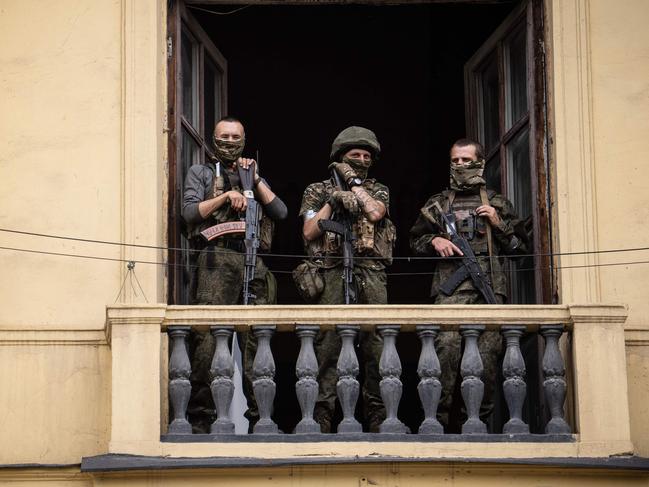
Earlier, Mr Prigozhin said his troops had taken control of the military command centre and airbase in the southern city of Rostov-on-Don, the nerve centre of Russia’s offensive in Ukraine, and vowed to topple Moscow’s top military leaders.
“We got to Rostov. Without a single shot we captured the HQ building,” he said, in an audio message on social media channels, claiming that local civilians had welcomed the operation.
“Why does the country support us? Because we went on a march of justice,” he said, claiming his men had not killed any soldiers despite having been hit with strikes from army “artillery and after that from helicopters”.
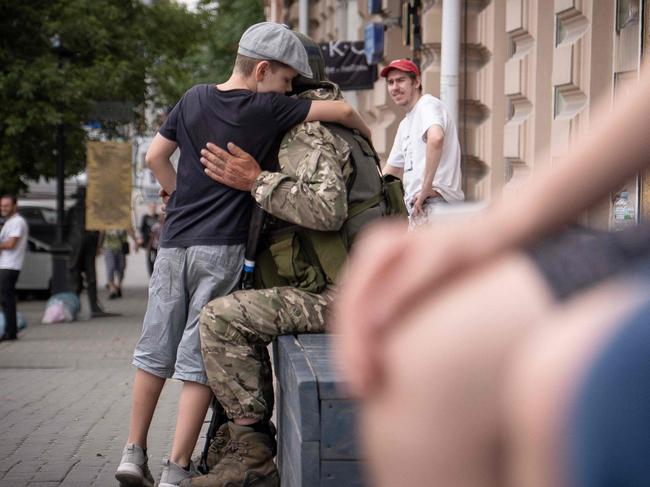
KREMLIN DENIES PUTIN FLED MOSCOW
Earlier, the Kremlin rebuffed claims that Vladimir Putin fled Moscow as the crisis escalated.
According to Flight Radar, which tracks active flights in real time, registered that one of the several aircraft used by Mr Putin took off from a Moscow airport just after 2pm local time.
Within 30 minutes of departure, the aircraft disappeared off the radar in the Tver region, where the President has an official residence.
The Russian government-owned Tass news agency dismissed the reports of Mr Putin’s exit from the capital.
“Putin is working in the Kremlin,” a Kremlin spokesman told the news agency.
Intelligence reports indicate that Russian Deputy premier Denis Manturov departed Moscow for Turkey earlier on Saturday as the paramilitary Wagner group’s armed coup efforts unfolded on Saturday.
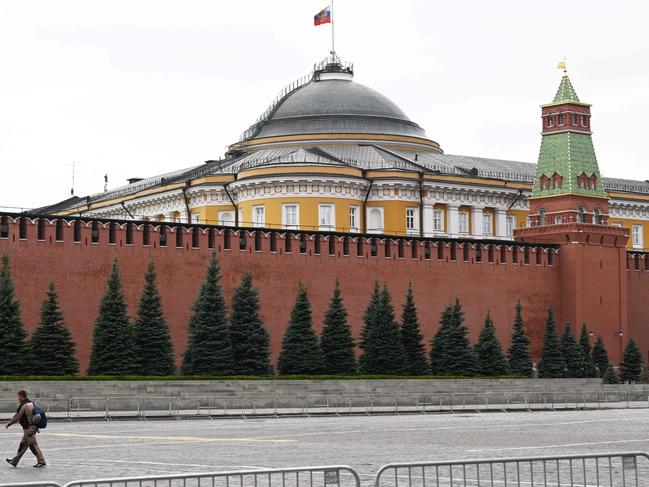
Mr Prigozhin accused the Kremlin of air strikes on a Wagner camp, killing 2000 mercenaries.
“All of us are ready to die. All 25,000, and then another 25,000,” he said.
The Wagner rebellion is the first real threat thrown at Mr Putin during his decades-long rule over Russia. In a stark message, Mr Prigozhin warned Mr Putin that he had the “motherland” behind him.
“The President makes a deep mistake when he talks about treason,” Mr Prigozhin said in a recorded message.
“We are patriots of our motherland, we fought and are fighting for it.”
He claimed that the Russian people reject the “corruption and deceit” of the Kremlin.
Russian military helicopters opened fire on a convoy of Wagner mercenaries as the column pushed through the city of Voronezh in a push toward the Kremlin.
Voronezh is more than halfway along the 1000km road connecting Rostov to Moscow, which was preparing for an assault.
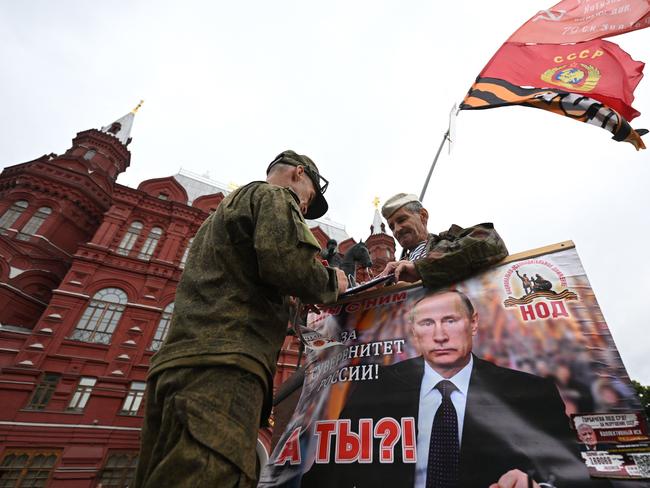
HOW COUP ATTEMPT UNFOLDED
Wagner’s lightning advance toward the Russian capital came after the military contractor captured Russia’s Southern Military District of Rostov-on-Don, near the Ukraine border.
Mr Prigozhin’s Wagner Group, which has waged a brutal war in Ukraine supporting the Kremlin, turned against Mr Putin on Saturday.
The leader and his private army have been responsible for some of the fiercest fighting in Ukraine despite his war of words with Mr Putin and Russia’s top military brass Sergei Shoigu.
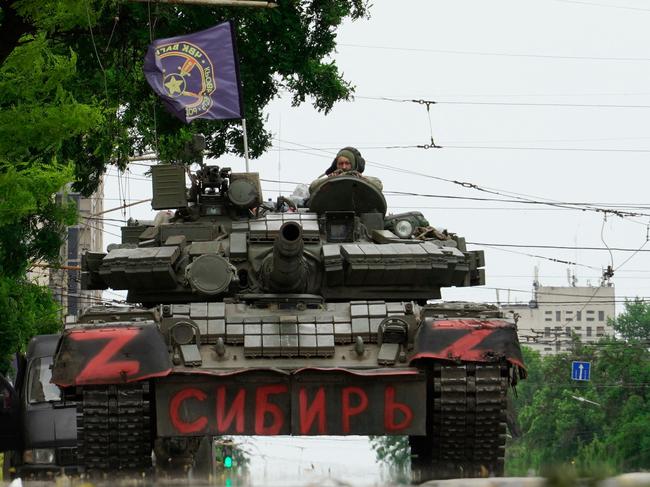
As the crisis escalated, British intelligence reported that Wagner troops were on the move toward Moscow.
British defence officials called it “the most significant challenge to the Russian State in recent times.”
In London, the British Ministry of Defence warned that over the coming hours, “the loyalty of Russian’s security forces will be key to how to crisis plays out”.
As the group made its approach, Mr Prigozhin claimed that Russian frontier guards welcomed his troops with “open arms”.
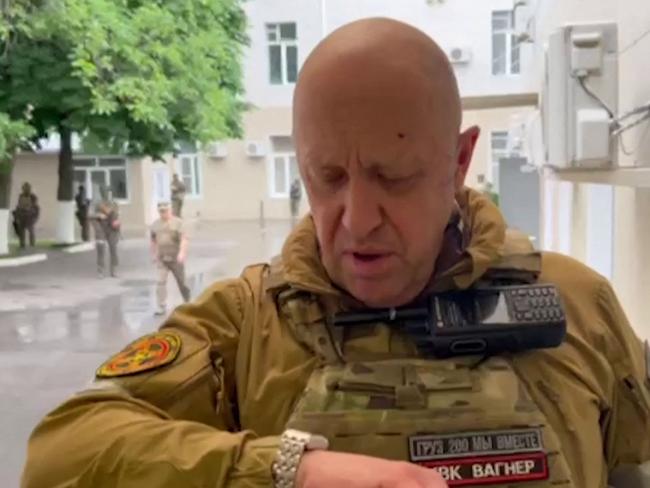
Mr Zelenskyy said the armed insurrection was evidence of Russia’s inherent political instability.
“Russia’s weakness is obvious,” he said in a statement on social media.
“Full-scale weakness. And the longer Russia keeps its troops and mercenaries on our land, the more chaos, pain, and problems it will have for itself later.
“Ukraine is able to protect Europe from the spread of Russian evil and chaos.”
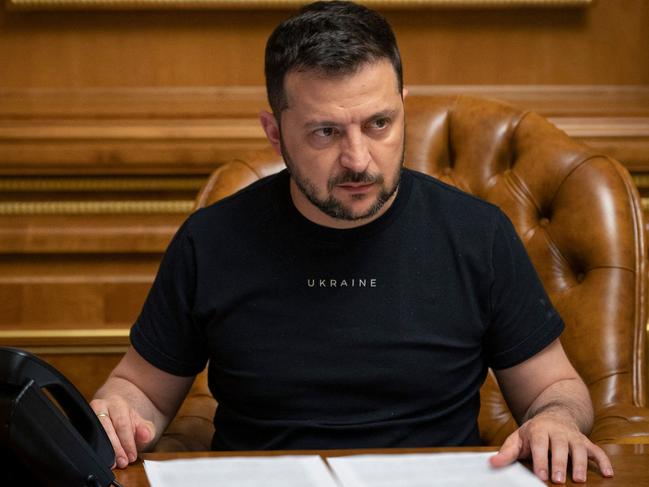
The rapidly escalating events mark the most serious challenge yet to Mr Putin’s long rule, and Russia’s most serious security crisis since the strongman came to power in late 1999.
Mr Zelenskyy accused Putin of throwing “hundreds of thousands into the war, in order to eventually barricade himself in the Moscow region from those whom he himself armed”.
“For a long time, Russia used propaganda to mask its weakness and the stupidity of its government,” he added in the statement.
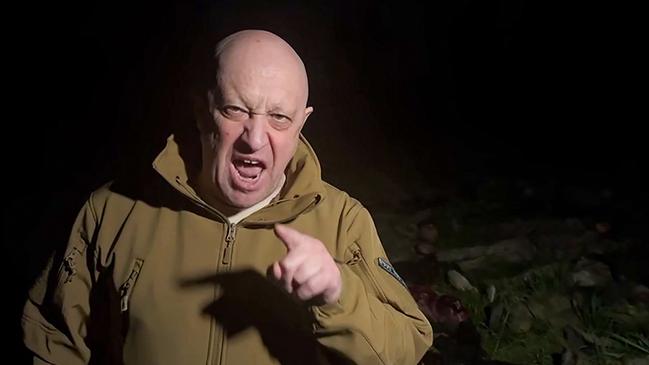
Mr Putin instructed his military to crush Prigozhin’s armed rebellion.
“Everyone who deliberately embarked on the path of betrayal, who prepared an armed rebellion, chose the path of blackmail and terrorist methods — they will suffer inevitable punishment,” Mr Putin said in a five-minute televised address to the nation.
He said the armed mutiny by Wagner mercenaries was a “stab in the back” and that the group’s chief Yevgeny Prigozhin had “betrayed” Russia, vowing to punish those rebelling.
“This is a stab in a back to our country, to our nation,” Mr Putin said.
“What we have been faced with is exactly betrayal. Extravagant ambitions and personal interests led to treason.”
Mr Putin described efforts by the Wagner military group to unseat the country’s top brass as a “deadly threat” to Russia and urged the country to unite.
“Any internal turmoil is a deadly threat to our statehood and to us as a nation. This is a blow to Russia and to our people,” he said in the televised address.
“This battle, when the fate of our people is being decided, requires the unification of all forces and unity.”
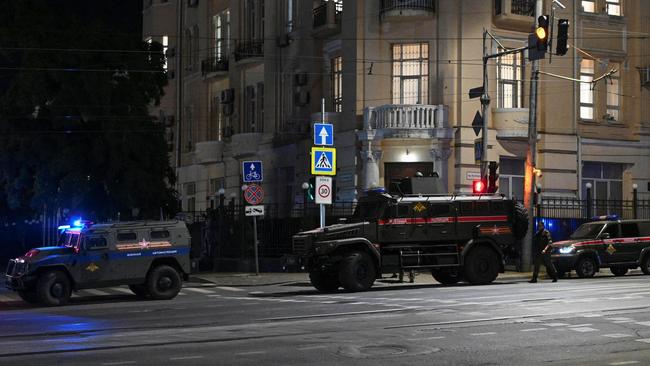
He acknowledged a “difficult” situation was unfolding in the southern city of Rostov, where the Wagner mercenary group took control of key military sites in an effort to oust Russian military’s top brass.
“There will be decisive measures taken on stabilising the situation in Rostov-on-Don,” Mr Putin said.
“It remains difficult and the work of civil and military authorities in fact is being blocked.”
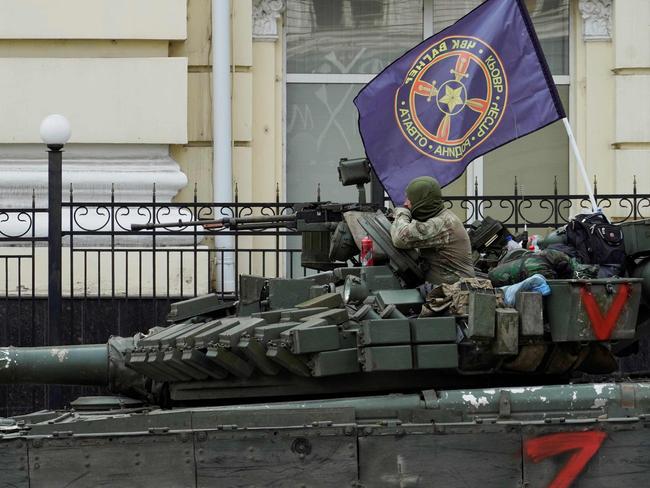
Russia’s military headquarters in Rostov are a key logistical base for its offensive in Ukraine.
“We are inside the (army) headquarters, it is 7.30am,” Mr Prigozhin said in a video on Telegram, which appeared to show him inside the headquarters as the crisis unfolded.
“Military sites in Rostov, including an aerodrome, are under control.”
He said that planes taking part in the Ukraine offensive “are leaving as normal” from the airfield.
“We took (the aerodrome) under control so that the attack aviation did not strike us, but strike Ukrainians,” Mr Prigozhin said.
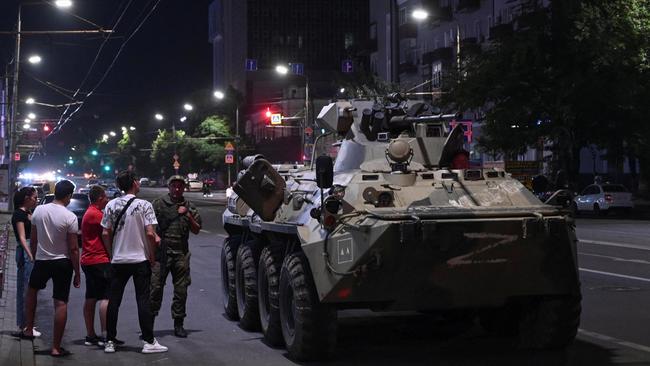
Mr Prigozhin demanded a meeting with the Russian President, Russia’s defence minister Sergei Shoigu and General Valery Gerasimov, chief of the General Staff of the Russian Armed Forces.
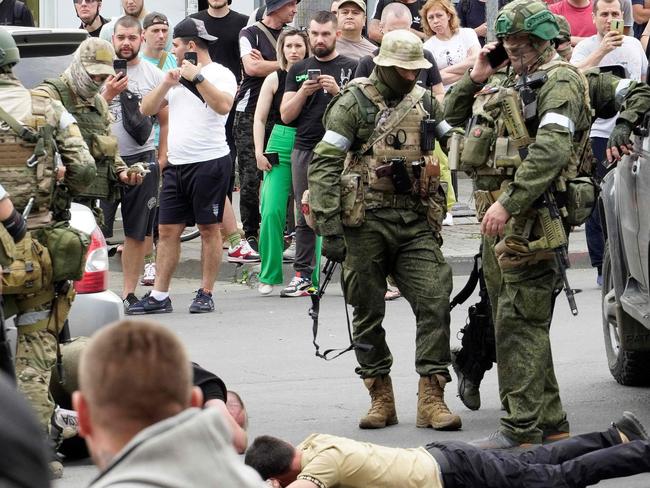
The warlord called Shoigu and Valery Gerasimov, chief of the general staff of the Russian Armed Forces and the overall commander of the war on Ukraine, “criminals” who had “destroyed” around 100,000 Russian soldiers.
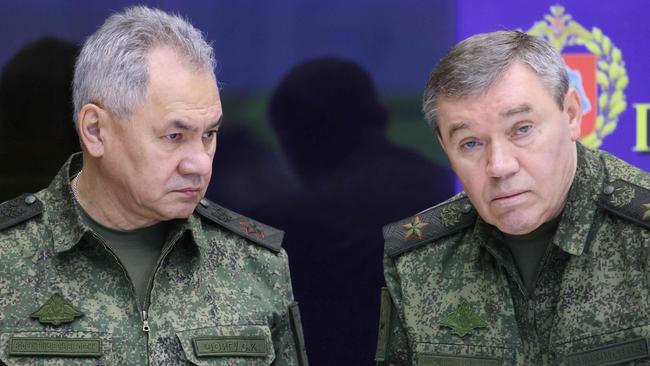
He accused Russian military of a rocket strike on a Wagner camp on Ukraine on Friday killing 2000 of his soldiers.
He claims that he shot down three military helicopters that fired on the Wagner column that entered the military compound in the early hours of Saturday.
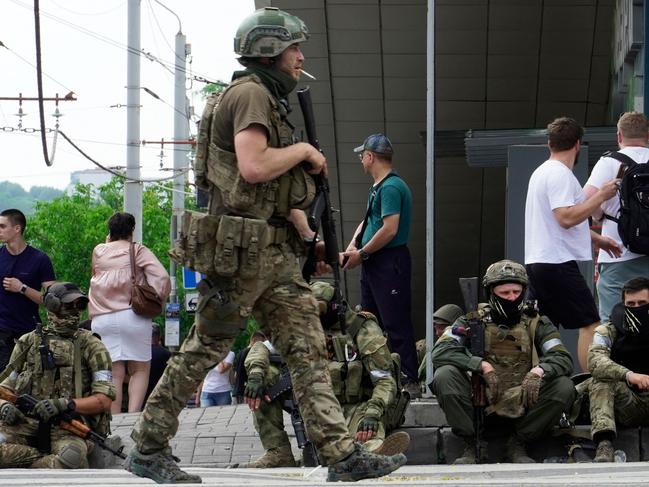
A war of words between the private military contractor and the Kremlin has been building for months, with Mr Prigozhin claiming that his soldiers were dying due to lack of ammunition and effective war planning.
The US has named the Wagner Group and Prigozhin as a “significant transnational criminal organisation”.
The mercenaries are accused of child abduction, mass execution, and rape in the Central African Republic and Mali.



